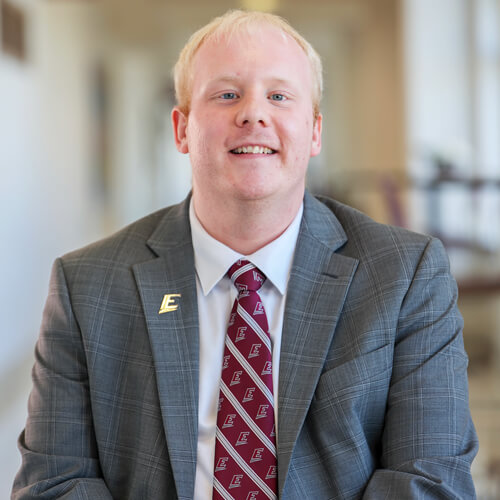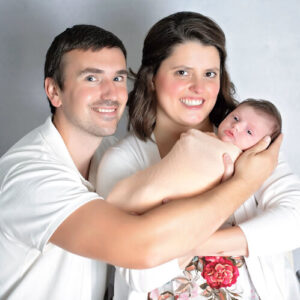
Bachelor of Science in ASL & English Interpretation
Department of American Sign Language & Interpreter Education
College of Education & Applied Human Sciences
Bachelor of Science in ASL & English Interpretation
Department of American Sign Language & Interpreter Education
College of Education & Applied Human Sciences
On-Campus
Program
127 Credit Hours
to Graduate
Full-Time, In-State Tutition
$5,010 Per Semester
Free Books
for All Students
Prepare to Equitably and Effectively Serve the Deaf Community
Prepare to become a professional interpreter with Eastern Kentucky University’s nationally accredited ASL and English interpretation bachelor’s degree. Gain the skills and knowledge to serve as a vital communication link between ASL signers and English speakers.
Learn More
Career Outlook
Employment of interpreters and translators is projected to grow 2 percent from 2023 to 2033.
– U.S. Bureau of Labor Statistics
Why EKU?
Minors & Certificates
Select from a wide range of minors, allowing you to explore interests or make use of prior credits. Suggested minors available for this program include:
You can also choose from numerous undergraduate certificates in specialty areas that complement and enhance your major as you work toward your degree. Suggested certificates for this program include:
View the full list of certificates available for completion as you earn your degree.
Curriculum & Enrollment
Eastern Kentucky University provides a balanced degree program that integrates ASL and English interpretation principles with hands-on learning opportunities. EKU’s curriculum blends academic and professional preparation with a strong grounding to promote equality and respect of Deaf, Deaf-Blind and Hard of Hearing people.
EKU’s ASL and English interpretation curriculum prepares professional interpreters who are competent, ethical, and life-long learners. Graduates of the program are well prepared to take on a variety of rewarding careers.
Enrolling & Advising Information
EKU’s College of Education and Applied Human Sciences is committed to delivering high-quality enrollment and academic advising for our students. We strive to create an atmosphere of mutual trust and meaningful engagement to help students reach their academic goals and have a rewarding educational experience.
Interested in enrolling? Reach out to our college enrollment counselor today.

Additional Contact Info
Admissions: 859-622-2106
Academic Testing: 859-622-1281
Big E Central (Financial Aid & Student Account Services): 859-622-2361
Military & Veterans Affairs Office: 859-622-2345
Student Stories & Features
Quick Links
Upcoming Events
News & Updates
EKU Continues Addressing Teacher Shortage With Option 9 Competency-Based Education Courses for Elementary Education Certification
Café Burrier Serves Up a Gourmet Experience in Richmond
Welcome to EKU: A Freshman’s Guide to Fall Semester
Related Programs

B.S. in Deaf & Hard of Hearing Education
Common Job Titles: special education teacher
Modalities: on-campus
Credit Hours: 132-144

B.S. in Communication Sciences & Disorders
Common Job Titles: Speech-Language Pathologist
Modalities: on-campus
Credit Hours: 120
Contact Information
Department of American Sign Language & Interpreter Education
Wallace Building
Room 216
859-622-4966
Video Phone: 859-353-0068
aslie@eku.edu




